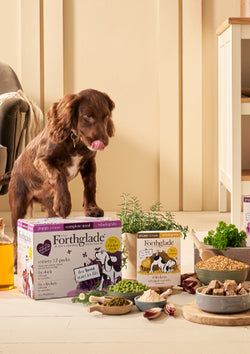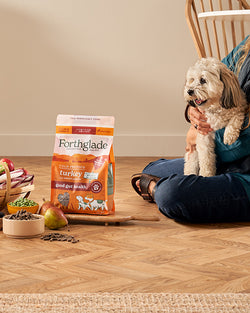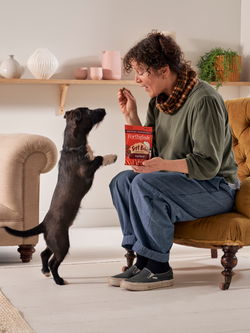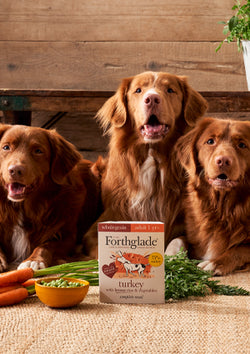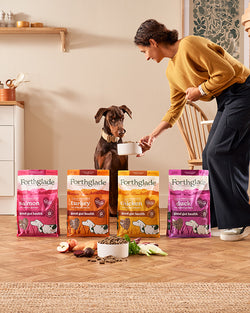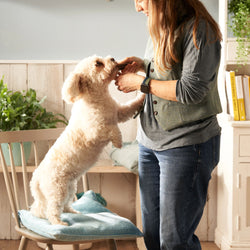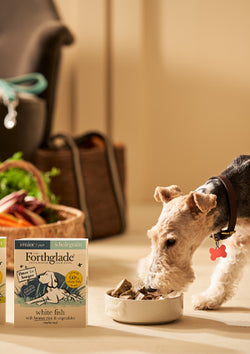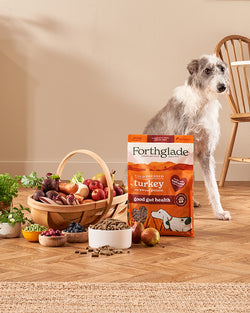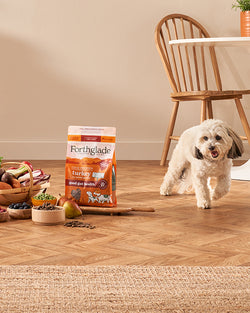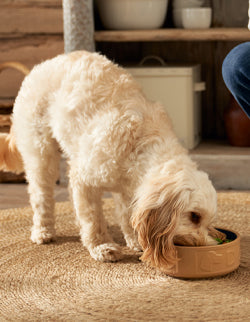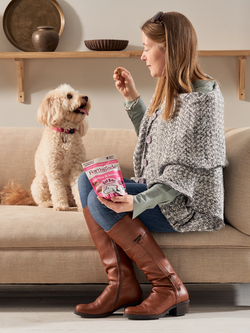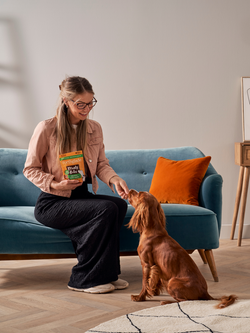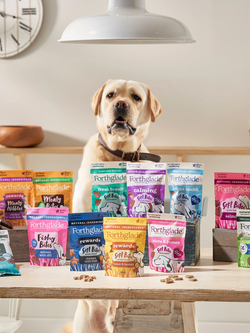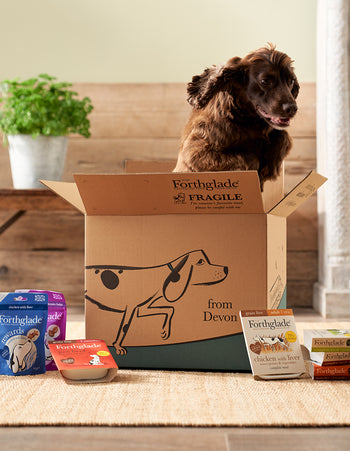Can Puppies Eat Adult Dog Food & Vice Versa?
When it comes to our furry friends, understanding their dietary needs is crucial for ensuring a long, healthy life. Just like humans, dogs have specific nutritional requirements that change as they grow. Feeding dogs the correct type of food is vital—not just for their health, but also for their happiness and overall well-being. But what happens when you have a puppy and an adult dog at home? Can puppies eat adult dog food, and is it safe for adult dogs to munch on puppy food? Let’s dig into the details!

Why Are Puppy Diets Different?
Growing puppies have different nutritional needs compared to adult dogs. Their bodies are rapidly developing, requiring higher amounts of essential nutrients like calcium, phosphorus, zinc, copper, and sodium. These minerals play a significant role in forming healthy bones and tissues. A deficiency or excess of certain vitamins can lead to serious health issues, impacting their growth and development. For this reason, it’s essential to choose the right *puppy food* to meet these specific needs.
Nutritional Requirements of Puppies
Puppies require a diet rich in protein and higher levels of certain vitamins and minerals to support their growth. Specifically, the protein content in their food should be higher than what is typically found in adult dog food. This ensures they have the building blocks needed for muscle development and overall vitality. Additionally, the right balance of vitamins and minerals supports their immune system and promotes healthy organ function.
Feeding a diet tailored for puppies helps ensure they grow into strong, healthy adult dogs. You can find our specially formulated puppy food options [here]
Risks of Feeding Puppies Adult Dog Food
Feeding puppies adult dog food comes with potential risks that can impede their growth. Adult dog food often lacks the necessary nutrients for developing puppies, which can result in insufficient nourishment. This nutritional gap can lead to developmental issues, such as skeletal problems, that can affect your puppy’s quality of life.

Nutritional Requirements of Adult Dogs
As dogs transition into adulthood, their nutritional needs shift towards maintaining their health rather than growth. A balanced diet becomes essential to support their overall well-being. Adult dogs require a carefully calculated calorie intake to prevent obesity while ensuring they receive adequate nutrients for maintaining healthy body function. This balance helps keep them active and vibrant throughout their lives.
Risks of Feeding Adult Dogs Puppy Food
While puppy food is formulated to meet the needs of growing dogs, it can pose risks for adult dogs. Puppy food typically contains more calories and protein, which can lead to weight gain if consumed regularly. An imbalance of nutrients can also occur, potentially resulting in gastrointestinal upset or other health issues. It’s important to keep your adult dogs on a diet tailored to their unique needs.
For a balanced approach, opt for the appropriate adult dog food.
Can Puppies Eat Adult Dog Food?
In the short term, puppies can survive on adult dog food, but it’s not recommended as a long-term solution. While they may not experience immediate health issues, the lack of essential nutrients could lead to long-term consequences. In emergency situations where puppy food is unavailable, feeding adult dog food temporarily can be acceptable. If you find yourself in this situation, monitor your puppy for any signs of distress and consult your vet for guidance.
Can Adult Dogs Eat Puppy Food?
Adult dogs can eat puppy food without severe immediate repercussions, but it’s not advisable for the long term. Short-term consumption is generally acceptable, especially if they accidentally get into the puppy’s food. However, a diet high in calories and protein can lead to weight gain and metabolic issues over time. It’s essential to switch back to an appropriate adult diet to maintain their health and prevent obesity.

Transitioning Between Foods
Transitioning between puppy and adult food requires care and attention. Here’s how to do it smoothly:
Transitioning Puppies to Adult Dog Food
You should consider transitioning your puppy to adult dog food around their first birthday, depending on their breed and size. Start by mixing a small amount of adult food with their puppy food, gradually increasing the adult food portion over 7-10 days. This slow transition helps avoid digestive upset and ensures they adjust well to the new diet.
Transitioning Adult Dogs Off Puppy Food
If your adult dog has been eating puppy food, it’s crucial to switch them back to a suitable adult diet. Look for signs that they’ve been on puppy food too long, such as weight gain or gastrointestinal issues. Begin the transition by mixing the adult food with the puppy food in increasing ratios over 7-10 days, ensuring your dog adjusts comfortably.






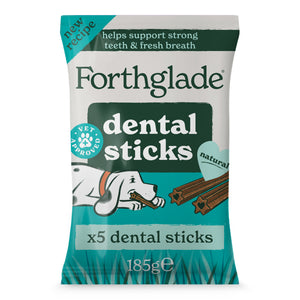

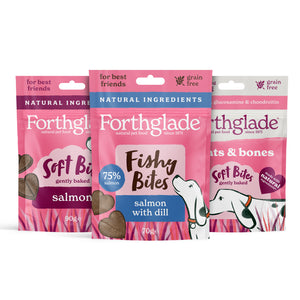
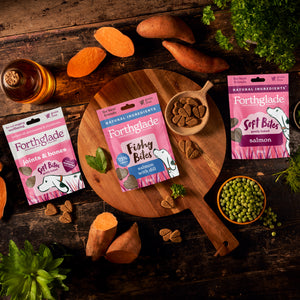


 FAST & FREE DELIVERY ON ORDERS £40+*
FAST & FREE DELIVERY ON ORDERS £40+*
 SUBSCRIBE TO SAVE 10% OFF EVERY ORDER
SUBSCRIBE TO SAVE 10% OFF EVERY ORDER
 OVER 13,600 5 STAR REVIEWS
OVER 13,600 5 STAR REVIEWS


